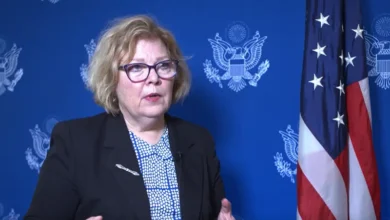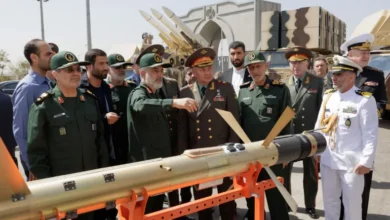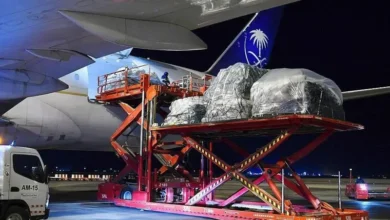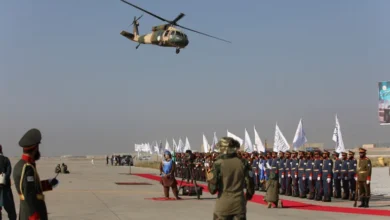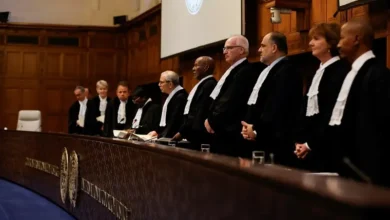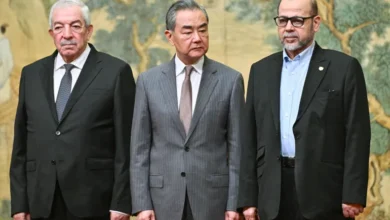Why Latin America’s ‘pink tide’ is taking a stand against Israel
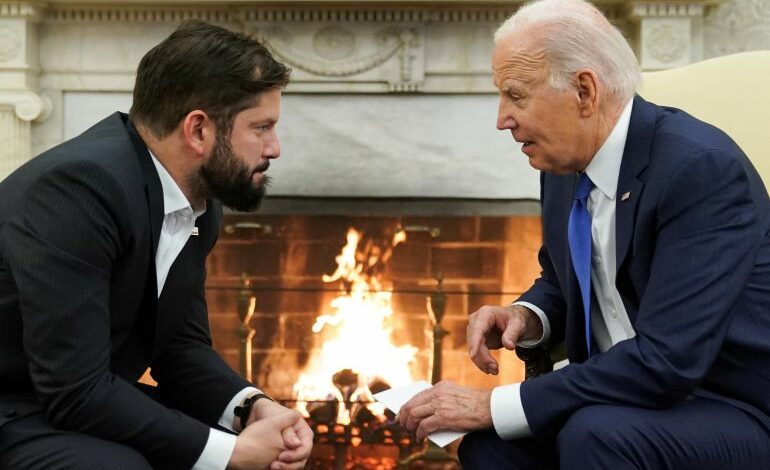
As Israel’s bombardment of Gaza enters its second month, world leaders have increasingly voiced concern over the rising death toll and suspected human rights violations in the Palestinian territory.
But in the West, few have been as vocal — or as severe in their criticism — as the leftist leaders in Latin America, many of whom came to power as part of a progressive wave known as the “pink tide”.
The Latin American leaders’ sharp rhetoric, he added, stood in stark contrast with statements from other Western leaders, like United States President Joe Biden, who have been more circumspect in their criticism of Israel.
In response to Latin America’s diplomatic backlash, the Israeli Ministry of Foreign Affairs called on Colombia and Chile to support its right “to protect its citizens”. To do otherwise, Israel suggested, would be to align “with Venezuela and Iran in support of Hamas terrorism”.
It also called Bolivia’s decision to cut relations altogether “a surrender to terrorism”.
Bolivia, Chile and Colombia were not alone in their criticism. By Friday, the leftist government in Honduras had likewise pulled its ambassador from Israel for “consultations”. And after last week’s bombing of Jabalia, Gaza’s largest refugee camp, more left-leaning leaders from Latin America spoke out against the Israeli violence.
The Ministry of Foreign Affairs in Argentina, for instance, home to the largest Jewish community in Latin America, condemned the attack in a statement: “Nothing justifies the violation of international humanitarian law.”
Cold War legacy on left-wing politics
The current conflict in Gaza, however, is not the first time Latin America’s leftist leaders have taken a stand against Israel.
Jaramillo pointed out that Cuba’s Fidel Castro became the first Latin American leader to break relations with Israel back in 1973.
Announced in the midst of the Cold War, Castro’s decision served as a rebuke both to Israeli aggression in the Middle East and to its biggest ally, the US — Cuba’s adversary at the time.
The legacy of the Cold War has primed Latin America’s leftist leaders to be sympathetic to the Palestinian cause, according to Jehad Jusef, the vice president of the Palestinian Union of Latin America, an association of Palestinian diaspora groups.
During the Cold War, the US backed military dictatorships in Latin America that suppressed leftist movements, Jusef said.
That history, he argued, serves as a parallel for the modern-day situation in Gaza, where the US is supporting Israel in a campaign that has raised grave human rights concerns.
Israel played its own role in Latin America’s Cold War period, serving as a major arms dealer to the US-backed military dictatorships in places like Guatemala and Argentina.
“Imperialism in Latin America is the same as imperialism in the Middle East,” Jusef said.
Experiences with displacement
Experts said Israel’s settlement of Palestinian territories has also fostered a sense of recognition among Latin American leaders.
Hundreds of thousands of Palestinians faced displacement during the 1948 establishment of the state of Israel after a period of prolonged Western involvement in the region. The UN continues to denounce the expansion of Israeli settlements in Palestinian territories like the West Bank as illegal.

